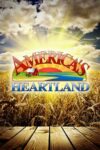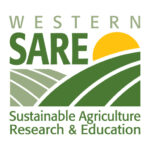Showing 1-10 of 80 results
On-Farm Research Advances Cost-Effective Weed Management Practice on Guam
Guam’s farmers often rely on hand weeding or gas trimmers to control fast-growing weeds in citrus, papaya and pepper crops. These methods can be expensive and time consuming, so one innovative farmer is instead trying sheet mulching as a cost-effective method to control weeds. Sheet mulching involves layering various sources of organic waste materials on […]

RFD-TV to Feature Sustainable Innovations on "America’s Heartland"
Tune in to RFD-TV on Wednesday, April 16, at 5:30 EDT for a new episode of "America’s Heartland" highlighting farmers and ranchers who are using sustainable strategies to adapt to increasingly challenging and unpredictable weather conditions. Produced in collaboration with SARE and PBS KVIE, the episode showcases a range of innovative farming techniques, rural community […]
Farmer Leadership Key to Adoption of Sustainable Grazing Practices in Wisconsin
Farmers are often reluctant to risk investments of time or money to adopt research-based conservation practices on their farms. In southern Wisconsin, a creative approach to fostering informal, farmer-led learning opportunities has been key to encouraging farmers to adopt cost-cutting grazing and cover cropping practices that successfully decrease soil erosion and waterway contamination. Dane County […]
Farmer-Led Innovation Improves Aquaculture Production and Ecosystems in New England
Southern New England’s climate offers ideal conditions for producing bay scallops—a sustainable seafood option that also diversifies aquaculture enterprises. However, an important challenge in bay scallop farming is access to nursery systems that can efficiently raise scallops to maturity before transferring them to grow-out environments. With support from a Northeast SARE Farmer grant, Dr. Daniel […]
Partnership Helps Ohio Farmers Increase Revenue and Production Efficiency
Without access to processing facilities, Midwestern specialty crop farmers often miss out on the opportunity to transform their surplus harvests into shelf-stable, value-added products that bring in revenue year round. Jeanine Seabrook, founder and owner of Glass Rooster Cannery in central Ohio, received two North Central SARE Farmer Rancher grants to partner with local farmers […]

Western SARE Seeks Regional Director
Distributed by SARE Outreach on behalf of Western SARE Western SARE’s Regional Director Dr. Clayton Marlow has announced his retirement and Montana State University has begun a national search to hire Western SARE’s new Regional Director. Western SARE is one of four regions organized under the national SARE (www.sare.org), a program of the U.S. Department […]
Utah Develops a Cost-Effective Treatment for Mineral Deficiency in Cattle
In Utah’s arid landscape, cattle producers face a critical challenge: deficiencies in essential trace minerals like copper, zinc, manganese and selenium, which are vital for cattle health. These mineral deficiencies, worsened by drought and environmental conditions, lead to severe health problems, including increased mortality and illness among affected livestock. Dr. Kara Thornton-Kurth of Utah State […]
Systems Perspective Improves Productivity and Environmental Quality of Grazed Forests
Throughout the South, urbanization and development have diminished viable farmland. Now, some innovative researchers and farmers are exploring silvopasture—the integration of grazing livestock on forested land—to improve the economic performance and ecological benefits of grazed forests. Dr. John Quinn and a team of pork farmers and researchers at Furman University received a Southern SARE Research […]

SARE Fellows Program Temporarily On Hold
SARE Outreach and our national partners have made a difficult decision to temporarily suspend the SARE Fellows program. We will not be accepting Fellows applications, beginning in 2025. SARE Fellows, which began in 2007, has been favored by agricultural professionals for providing professional development opportunities through national study tours focused on sustainable agriculture. However, Fellows […]
Research and Education Reveals Sustainable Cost-Cutting Option for Forage Production
Bermudagrass has long served as a cornerstone forage for hay production and livestock grazing in the Southeastern United States, but nitrogen fertilizer used in its production is a costly input that can pose risks to soil, water and air quality. In response, Auburn University’s Dr. Leanne Dillard spearheaded a Southern SARE Research and Education grant […]